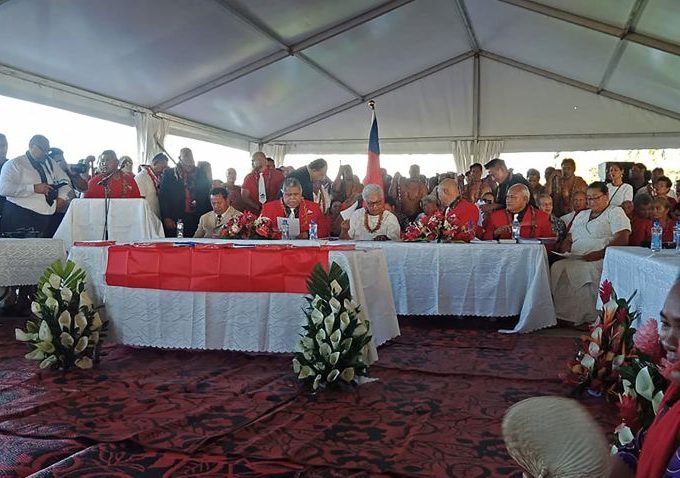
Gendered disinformation targets women in politics and journalism
Writing for the Council on Foreign Relations’ Women Around the World blog, Melanne Verveer and Lucina Di Meco argue that gendered disinformation thrives on social media platforms under the guise of free speech, threatening women’s rights and democratic freedoms.
In a recent study, 90% of women in the global south reported experiencing targeted online abuse, including threats and ‘vicious’ gendered disinformation campaigns. Verveer and Di Meco contend that these campaigns emerge from patriarchal and authoritarian structures and are designed to undermine and discredit women, particularly women of colour and women in leadership. The portrayal of women as ‘untrustworthy, unintelligent, too emotional, or sexual’ can also incite or encourage gendered violence.
Verveer and DI Meco argue that gendered misinformation erodes democratic standards by discouraging women from seeking positions of power or engaging in fields like journalism and politics. They also argue that official disinformation campaigns targeting female political opponents ‘erode liberal values and democratic principles all together’.
The solutions they propose include working with platform administrators, in close consultation with female leaders and activists, to develop robust standards and ensure women in vulnerable fields have the online tools and support networks they need to respond to gendered disinformation campaigns.
The impact of Lebanon’s socioeconomic crisis on women
On 25 May, the UN deputy special coordinator for Lebanon, Najat Rochdi, briefed the UN Security Council’s informal expert group on WPS on the ongoing socioeconomic crisis in Lebanon and its impact on women, which has been compounded by the Covid-19 lockdown, the Port of Beirut explosion that rocked the country in mid-2020, and the subsequent resignation of the entire Lebanese government.
Rochdi noted that the crisis had deepened gender inequalities in Lebanon and reiterated the UN’s calls for a reform-oriented government that strengthens female participation and supports recovery efforts that are inclusive of women.
In the aftermath of the Beirut port disaster, women in households in the explosion radius were disproportionately impacted. A 2020 UN Women report found that 51% of the affected population identified as female-headed households. The report also noted that the explosion had reduced access to food, first aid and reproductive health services, and increased the risk of homelessness and of gender-based violence.
Constitutional crisis in Samoa exposes barriers to women’s political representation
A piece by Kerryn Baker in Australian Outlook argues that women’s political representation is at the core of Samoa’s constitutional crisis. On 9 April, the country held an election and Fiame Naomi Mata‘afa, who leads the FAST party, edged out incumbent Prime Minister Tuila‘epa Sa‘ilele Malielegaoi and his Human Rights Protection Party (HRPP) by a slim majority. However, the HRPP has challenged FAST’s victory and Tuila‘epa has refused to recognise Fiame as the new prime minister.
The disagreement between the HRPP and FAST party centres on the interpretation of a provision in the Samoan constitution mandating that women make up 10% of parliamentarians. Five women were elected, bringing women’s representation to just 9.8%.
Baker theorises that the impasse could result in wider vilification and opposition to gender quotas in parliament. Currently, 6.8% of senior political positions in Pacific island nations are held by women, suggesting a potentially hostile environment. If Fiame is officially recognised as prime minister, this is likely to bolster support for women’s political participation in the region.
UN Women focuses on sustainability and social justice
UN Women has released a briefing on its forthcoming feminist plan for sustainability and social justice, which aims to respond to the ways in which Covid-19 has exacerbated gender inequality and amplified women’s vulnerabilities around the world. The plan will provide practical guidance and constructive policy suggestions to create a more ‘equal and sustainable future’.
McKinsey Global Institute has estimated that during the pandemic, women were 1.8 times more likely to lose their jobs than men. Women also take on around 75% of unpaid and underpaid domestic labour.
The plan sets out three priorities: ‘building a caring economy’ for essential healthcare workers ‘generating sustainable livelihoods for all’ to provide a robust social-protection system for women, especially those involved in informal economy; and ‘ensuring a gender-just, green transition’ by creating and investing in jobs focusing on sustainability for women.
Gender and the operational effectiveness of UN peace operations
The Georgetown Institute for Women, Peace and Security published a report on how gender impacts UN peace operations, based on interviews and case studies from UN peacekeeping missions in Cyprus, Lebanon and the Democratic Republic of the Congo.
One of the report’s key findings was that, despite women being under-represented in peacekeeping operations—they make up less than 5% of all military personnel, 11% of personnel in formed police units and 28% of individual police officers—women’s participation improved community engagement across the various missions.
The findings highlight the importance of uniformed women peacekeepers in interacting with women and girls and building trust in communities. Their presence helps to change community perceptions of gender roles and careers and, in some cases, leads to increased reporting of sexual harassment and violence against women.
Evidence suggests that their presence also helps deter sexual misconduct by male personnel during missions, though this adds an extra burden of responsibility on women to monitor their colleagues. The study also found that, while women were more effective in some peacekeeping areas, labelling them as the ‘most effective’ peacekeepers left them with no room for error in their performance and led to a ‘sense of disenfranchisement amongst uniformed men’.

